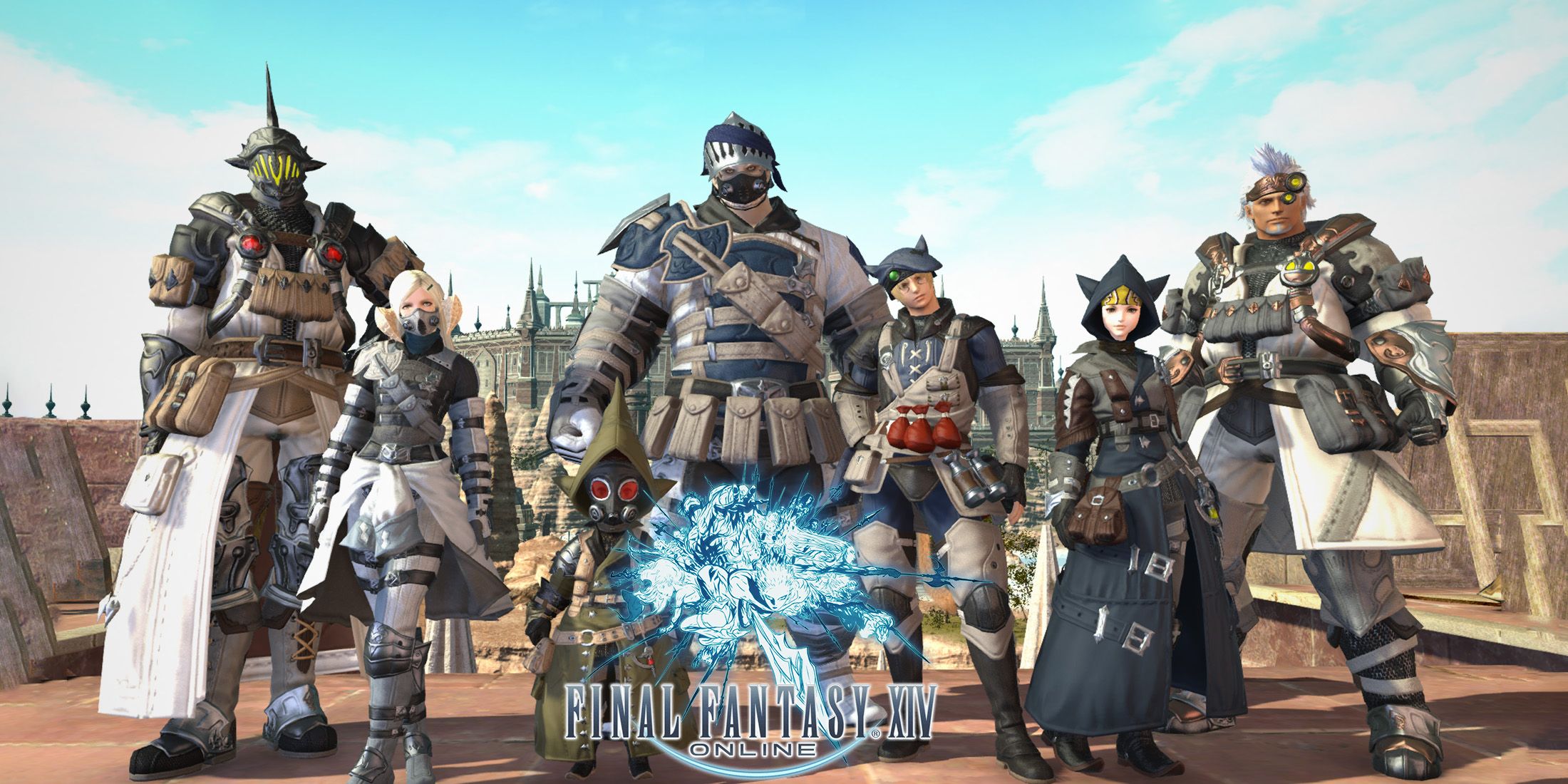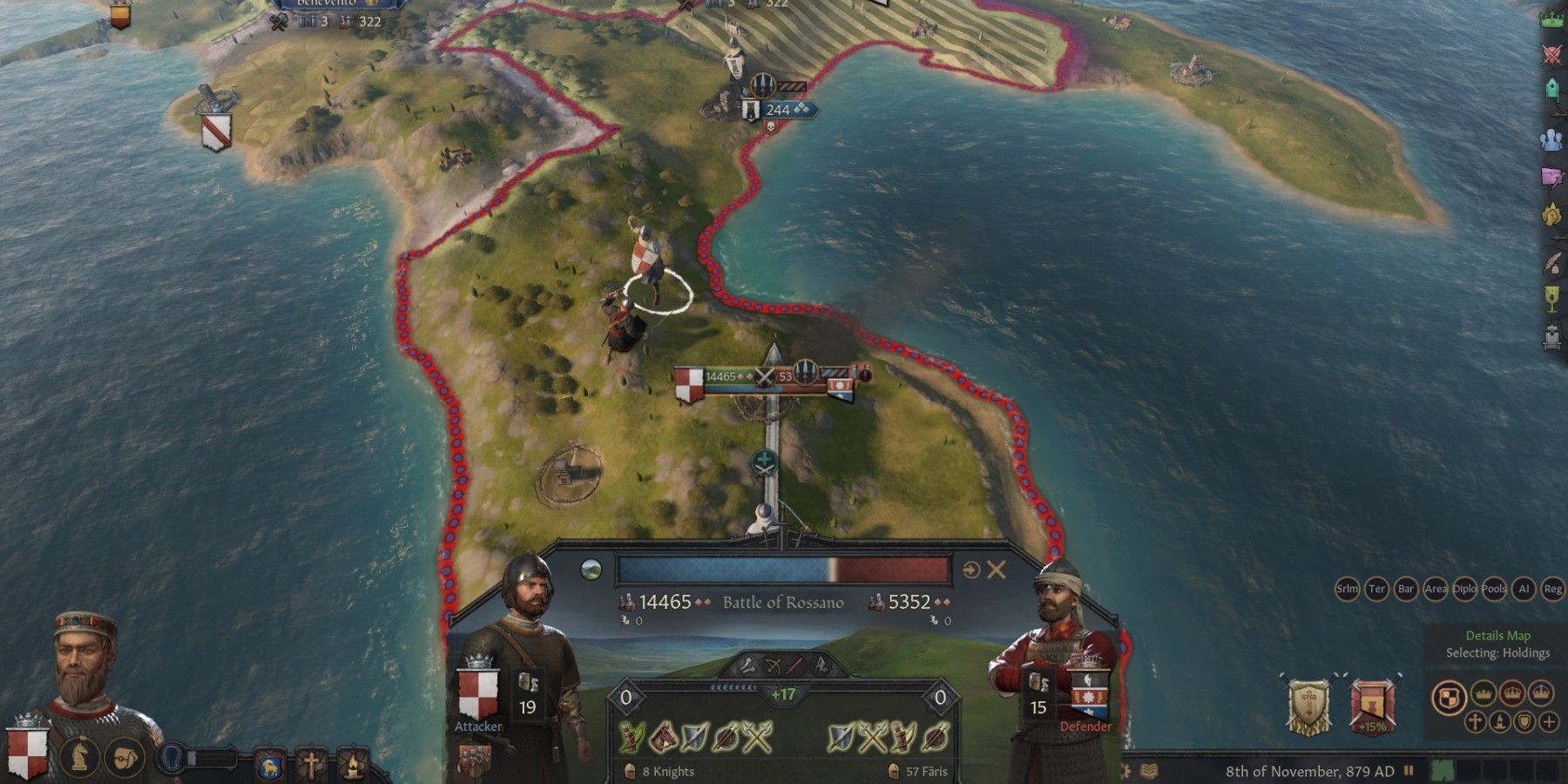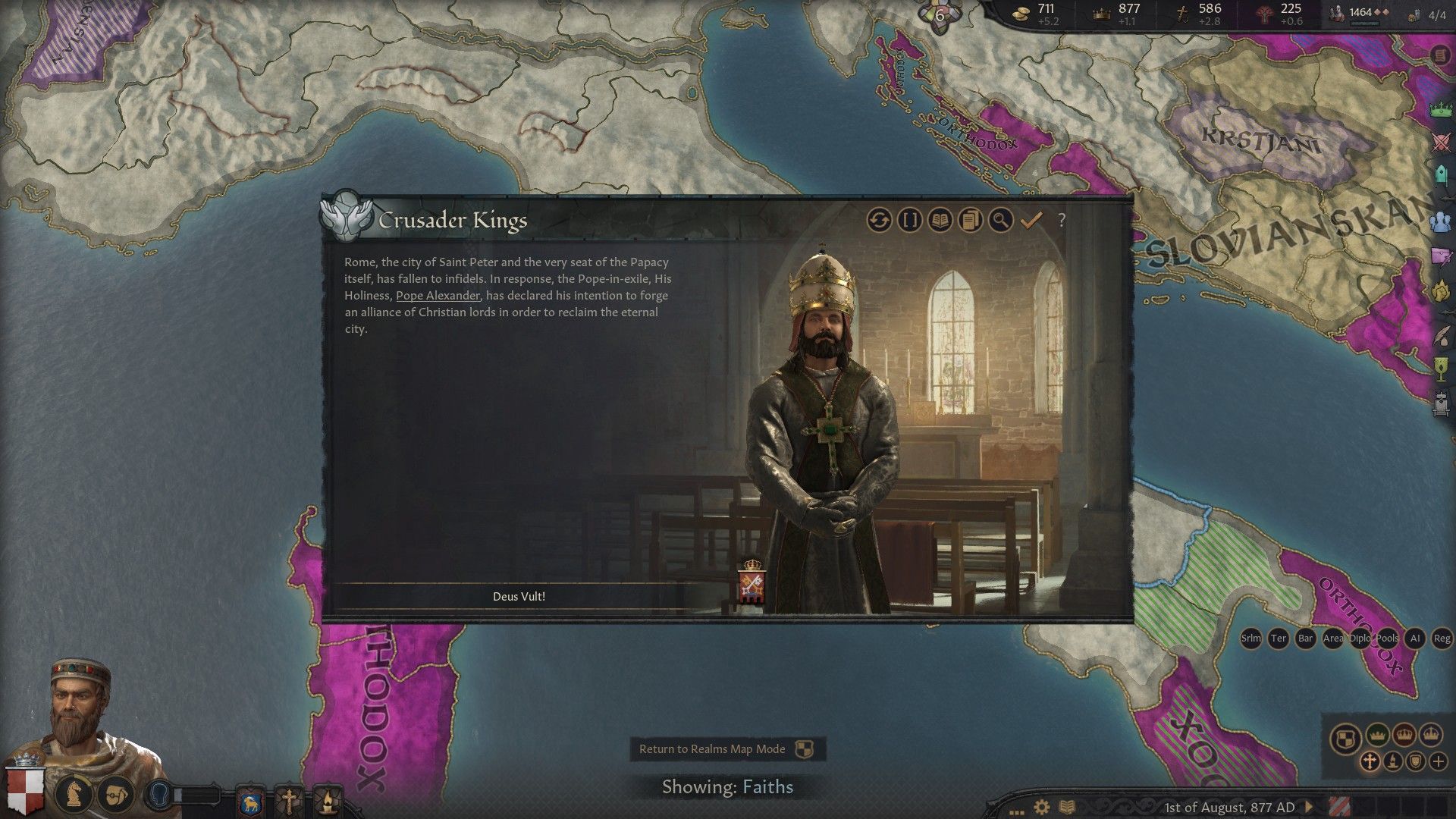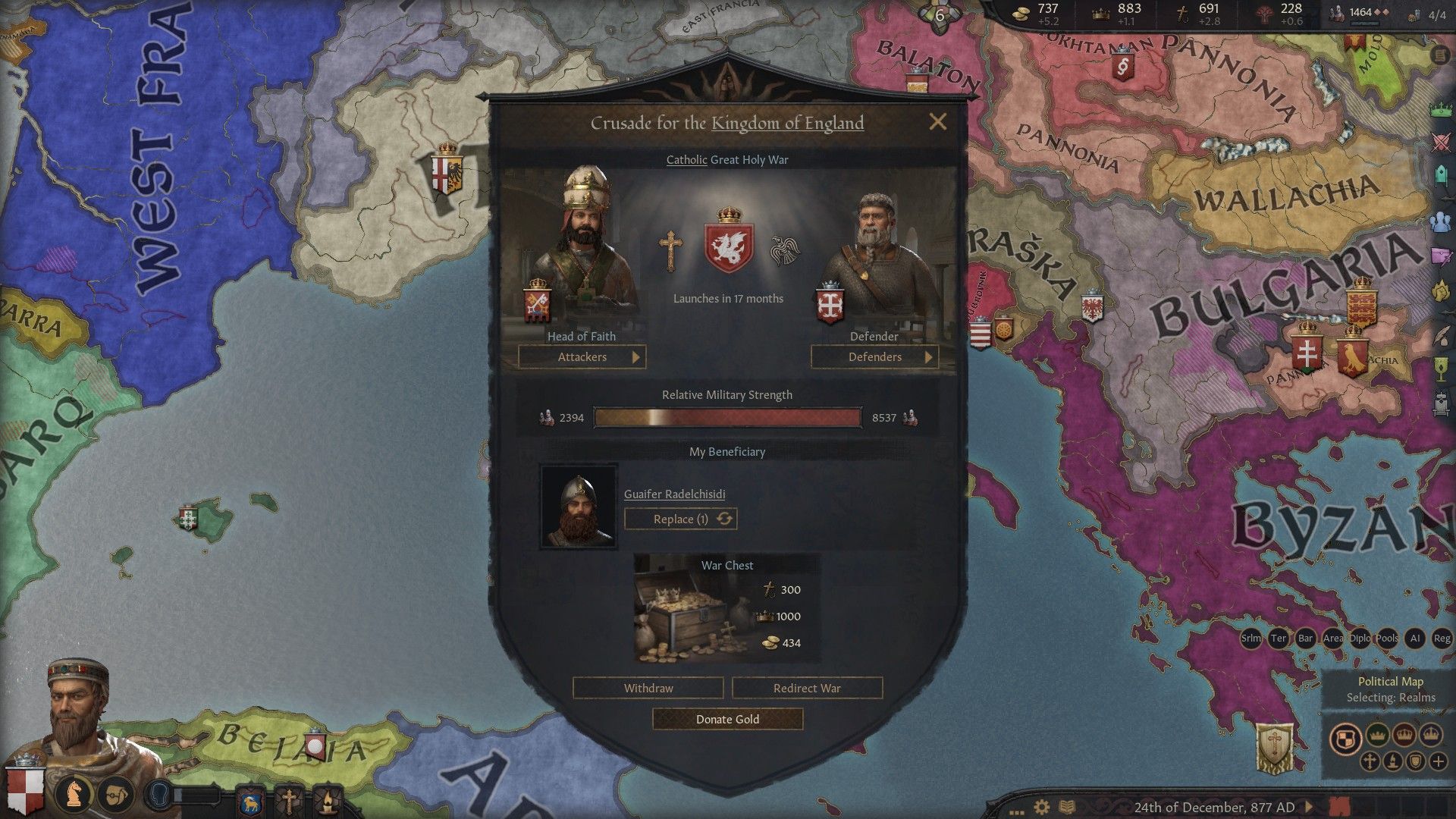Paradox Interactive put the word "crusade" right in the title of the game Crusader Kings 3, and so of course they have to both include crusades in the game and make them unique in the way they work. However, since players can now mix and match Tenets to create their own Faiths, the developers have created the umbrella term "Great Holy War."
A Great Holy War works very differently from any other kind of war in Crusader Kings 3, and it has a lot of restrictions on who can call one, when, and who gets to benefit from it. But because of the way they work, Great Holy Wars are likely to be the biggest conflicts players will see in the entire game (at least until Genghis Khan shows up).
How to Access Great Holy Wars
The very first thing players need to embark on a Crusade or other Great Holy War is a Faith that can support such a massive undertaking. Faiths from any Religious Family can call Great Holy Wars, but only if they have the right Tenets. These Tenets are:
Tenet | Religions with Access |
|---|---|
Armed Pilgrimages | Christianity Judaism |
Struggle and Submission | Islam Dualism |
Warmonger | All Pagan Religions All Eastern Religions Milete |
In the base game, only Catholicism has Armed Pilgrimages while Ash'arism, Maturidism, Muwalladism, Almohadism, Mu'tazilism (Sunni Islam Faiths), Isma'ilism, Nizarism, Zayidism, Ikhtilafism, Hafizi (Shia Islam), Azraqism, and Sufrism (Muhakkima Islam) all have Struggle and Submission. Tengriism and Asatru (Norse) have Warmonger, but they lack other traits needed to conduct a Great Holy War. If players want to play a ruler of a different Faith with access to Great Holy Wars, they'll need to create their own Faith or use a mod that adds such Faiths to the game.
The next requirement is to have an active Head of Faith, because only a Head of Faith can declare a Great Holy War. This Head of Faith can be Spiritual (and thus a theocratic NPC) or Temporal (and very possibly the player ruler). The way a Great Holy War works is different in each case, and this guide will go into these differences below. The Faith must also be Organized, which is what Asatru and Tengriism have to do to get access to Great Holy Wars.
Finally, Great Holy Wars must "unlock." This is to prevent Crusades from beginning immediately if players choose the 867 starting date, unless something dire happens to Catholic or Muslim lands. For a Faith to unlock Great Holy Wars, it must exist in 35 counties across the map, have 65 Fervor or more, and have an active Head of Faith.
Christian Crusades can unlock when:
- The date is at least 900 and the top liege of Cologne, Halberstadt, Paris, Toulouse, or Venaissin isn't Christian.
- The date is at least 1000 and the Byzantine emperor or the top liege of Constantinople, Ankyra, Athens, or Corinth isn't Christian.
- The date is at least 1095 and the top liege of Jerusalem isn't Christian.
- On any date, the top liege of Rome isn't Christian.
Islamic Jihads can unlock when:
- Crusades have unlocked and a non-Muslim controls a county that a Muslim Head of Faith considers a holy site.
The Great Holy Wars of any religion can unlock when:
- The date is at least 900 and a hostile or evil faith controls two holy sites.
- Both Crusades and Jihads have unlocked and a hostile or evil faith controls one holy site.
- The date is at least 1100.
Great Holy Wars don't unlock immediately even after the conditions are right, but they usually unlock within a few years of the trigger condition. Also, if one religion unlocks Great Holy Wars, other religions have to wait at least 10 years to unlock theirs.
There's one other situation that can unlock Great Holy Wars. If a ruler that follows a Hindu, Jain, or Buddhist Faith completely unites India and chooses the "Become Chakravarti" decision, their Faith will gain the special "Rightful Rulers of the World" Doctrine. This allows their Head of Faith (assuming there is one) to call Great Holy Wars, even if one of their Tenets is Dharmic Pacifism.
How to Conduct a Great Holy War
There are a few more restrictions on calling a specific Great Holy War. First, Great Holy Wars have a cooldown timer of 30 years, and the timer starts when the last Great Holy War ends. Second, the Faith's Fervor must be 75 or higher. Third, the Head of Faith must target a kingdom title that's ruled at least in part by characters of a hostile or evil Faith. NPC Heads of Faith tend to target kingdoms that contain holy sites, but any kingdom can be a target.
During a Great Holy War, the usual rules about vassals staying out of their rulers' wars are thrown out the window. Vassals of every level and their rulers can all join in the same war, creating massive, chaotic army stacks that roam across the kingdom. This rule also applies to defenders, and just like other holy wars, neighboring rulers of the same faith (of every tier) can join the defense.
If that wasn't enough, a Great Holy War doesn't target just one ruler, it targets every ruler of a hostile or evil faith who owns land in the de jure kingdom. This means that Great Holy Wars can be declared on multiple faiths at the same time.
If the Head of Faith is Temporal, they can declare a Great Holy War immediately on any kingdom title in the game. The game calls this a "directed" Great Holy War since the target is set in stone.
If the Head of Faith is Spiritual, they declare an "undirected" Great Holy War. All rulers of the same Faith are alerted to the future war and asked to aid the cause, either by joining the war, sending Gold, or both. Sending Gold gives the ruler a lump sum of Piety. A timer then starts, and the faithful get a year and a half to prepare for war.
The reason this is an "undirected" war is because players have a chance to change the target. During the buildup, a new icon will appear in the lower-right corner of the screen, right in the spot where the game displays War Scores. Selecting this icon will bring up a special menu where players can see who's leading each side, the relative strength of each side's forces, and a War Chest full of Piety, Prestige, and Gold. Any donated Gold goes to the War Chest and is distributed to the winning combatants based on their contribution to the War Score.
Under all that is a button that lets players join or withdraw from the war, one that lets them donate Gold, and one that lets them redirect the war. To redirect the war, players must select a new kingdom and then pay 500 Piety. A second redirect costs 1000 Piety, then 1500, and so on. NPC rulers can also redirect Great Holy Wars, but they almost never do.
Players can choose a beneficiary for a Great Holy War, and this is also true for directed GHWs where the player ruler is the Head of Faith. A beneficiary must belong to the player ruler's dynasty, must be unlanded, and must not be one of the ruler's heirs. If the attackers win the war, their beneficiaries will receive one or more titles in the conquered land based on their sponsors' contributions.
For instance, if the player ruler does more to win the war than anyone else, their beneficiary will get the kingdom title. However, this assumes that the kingdom doesn't already have a claimant of the right Faith ready to take on the title. On the other hand, the ruler who contributes the most in a directed Great Holy War will get the kingdom title, and if it's not an emperor that ruler will become independent, assuming they weren't independent already.
The relative military strength can also influence whether an undirected Great Holy War proceeds or not. If the defenders have a strength advantage of 4 to 1 against the attackers, the Head of Faith will call off the war.
Here are a few other ways that Great Holy Wars break the rules:
- White Peace is not an option. A Great Holy War can only be completely won or completely lost.
- Every character who shows up to a contested county during a Great Holy War, even as a knight in an army, gets a special Warrior of the Faith trait. However, if the character leaves the kingdom before the war ends, they lose the trait and some Prestige.
- Capturing the enemy ruler or any heirs has no impact on the War Score.
- Because they aren't the ones declaring the war, players can raise their armies and get them in place for the moment when an undirected Great Holy War begins.
- NPC armies are more aggressive during Great Holy Wars.
- Great Holy Wars don't add to the Offensive War Opinion penalty even for a Temporal Head of Faith.
- The attacking Faith's Fervor drops whether they win or lose the war, and the Fervor of all defending Faiths goes up if they lose.
- If the player's beneficiary gets the kingdom title in a Great Holy War, the game will let players switch to the beneficiary instead of sticking with their current ruler.
Crusader Kings 3 is available now on PC, PS5, and Xbox Series X/S.






